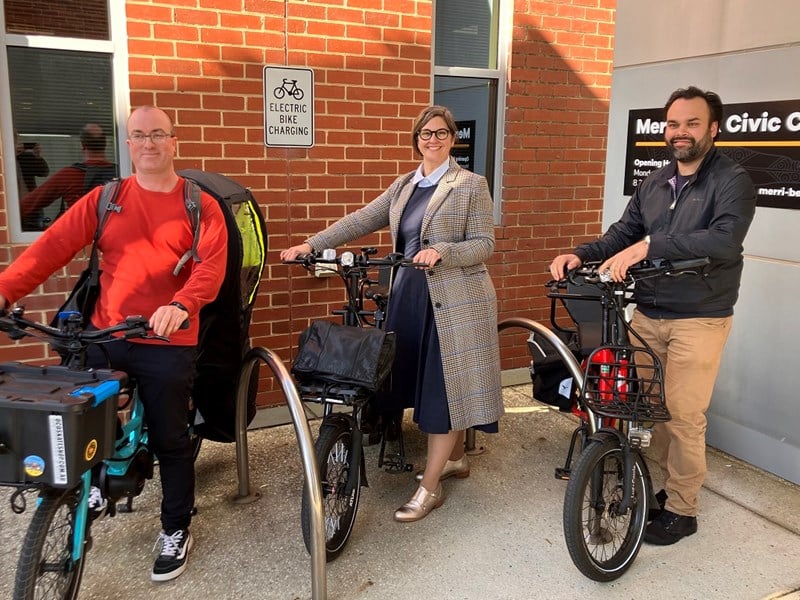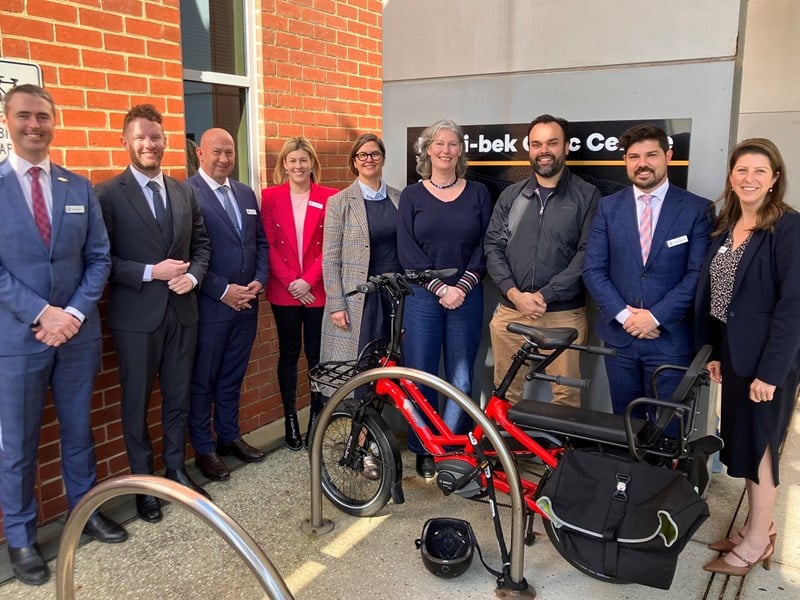- Home /
- News /
- Infrastructure /
Pandemic proves a speed bump for safer streets
10 August 2023

Glenroy father Rory had a revelation during the height of the COVID-19 pandemic.
‘During one of the lockdowns I went for a walk along Pascoe Vale Road, and it just struck me how quiet it was because there was not one car on the road. Normally it’s an incredibly hostile road for anyone not in a car.’
He says ‘something just clicked’ in that moment and, since then, he’s swapped the car for his bike whenever possible.
Rory was one of four parents who spoke to the Legislative Assembly Economy and Infrastructure Committee at a public forum at Merri-bek Civic Centre.

The Committee is investigating changes to road users’ behaviour during and after the COVID-19 pandemic, and how this affected the safety of people most at risk on the road.
Vulnerable road users, such as pedestrians, cyclists and motorcycle riders, are less protected in the event of a road crash.
The Committee hearing, held at the Merri-bek Ciivic Centre, focused on issues affecting vulnerable road users in Melbourne’s north, with a roundtable of council representatives from Yarra, Merri-bek, Darebin and Whittlesea. The Committee also heard from a range of community orgainisations representing cyclists, pedestrians, local businesses, environmental groups, seniors and others.
While the pandemic prompted a positive reassessment of active transport options from residents like Rory, for others it has led to a rising sense of vulnerability with increased aggression and distraction on the roads.
Allan Middlemast, Acting Manager, Climate Emergency & Sustainable Transport at the City of Darebin said the municipality had seen an explosion in the use of bicycles and e-scooters since the pandemic.
‘Sadly, we have also seen aggressive driving behaviour; failing to give way at school crossings or pedestrian crossings. That kind of behaviour is still lingering,’ he told the Committee.
He said the poor driver behaviour created an opportunity for a new road safety campaign from the Transport Accident Commission.
Merri-bek Mayor, Angelica Panopoulos, added that, while individual behaviour contributed to deaths and injuries, improved infrastructure that compelled road users to slow down and be more careful is also necessary to lower the road toll.
‘The figures (in Merri-bek) are absolutely horrific,’ she told the Committee.
A review of fatal and serious injury crashes involving vulnerable road users in Merri-bek found that 123 crashes between 2020 and 2022 resulted in five fatalities and 118 serious injuries.
Motorcyclists making a trip in Merri-bek were more than eight times more likely than a cyclist to be involved in a fatal and serious injury accident, while cyclists were six times more likely than pedestrians to be involved in such an accident.
Dr Andrea Bunting, convenor of the group Walk on Merri-bek, said elderly pedestrians were especially at risk, with more than half of pedestrian fatalities in the area among people over 70.
A consistent theme among many of those giving evidence was the need to slow car traffic in mixed use areas and create greater separation between vulnerable road users and other vehicles.
Transcripts of the hearing, and the previous hearing involving government departments, researchers and community organisations, will be available on the Committee’s website shortly.
Further hearings are scheduled for later in August and in September.
The Committee has received more than 280 submissions and will report to Parliament in March 2024.